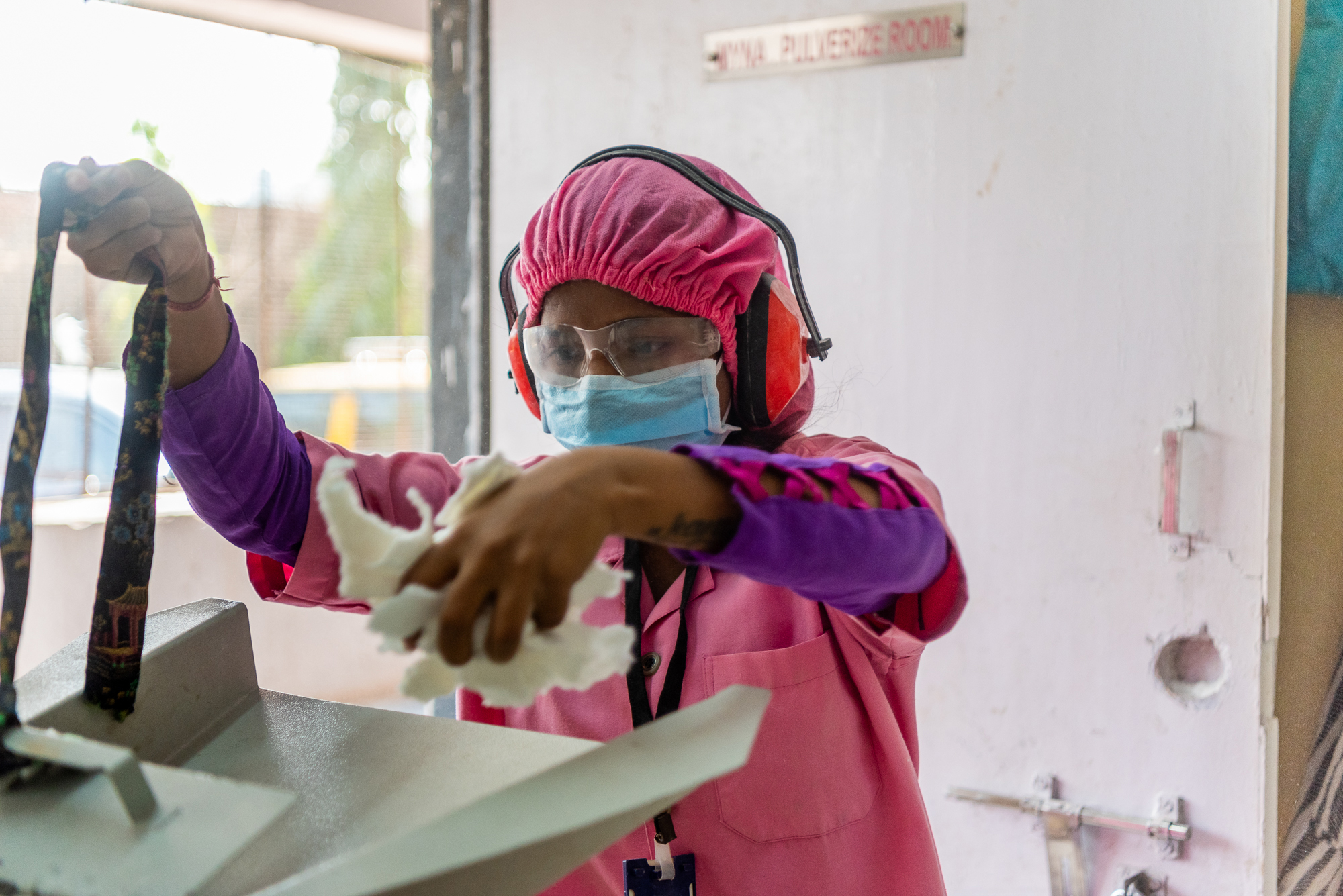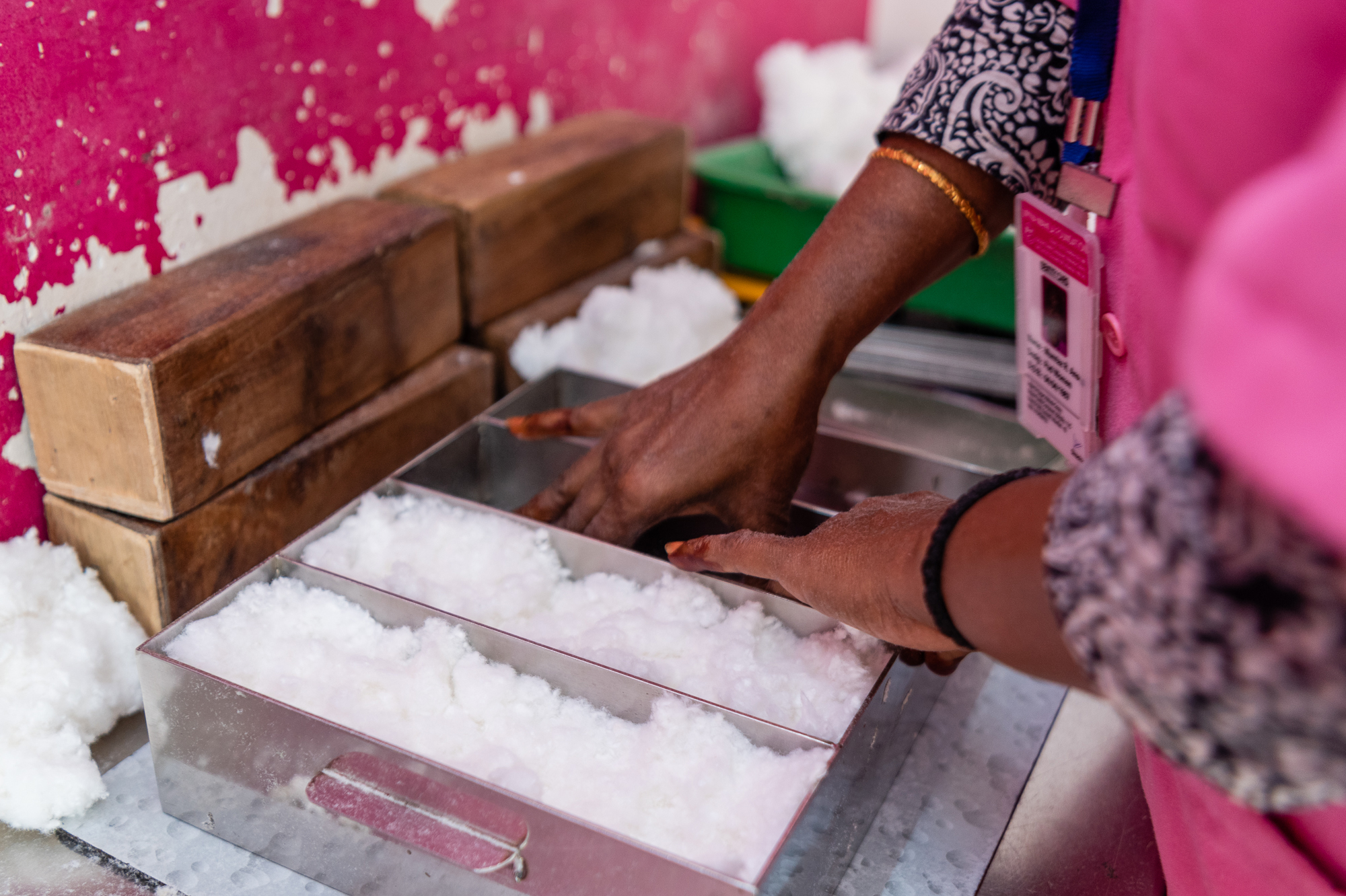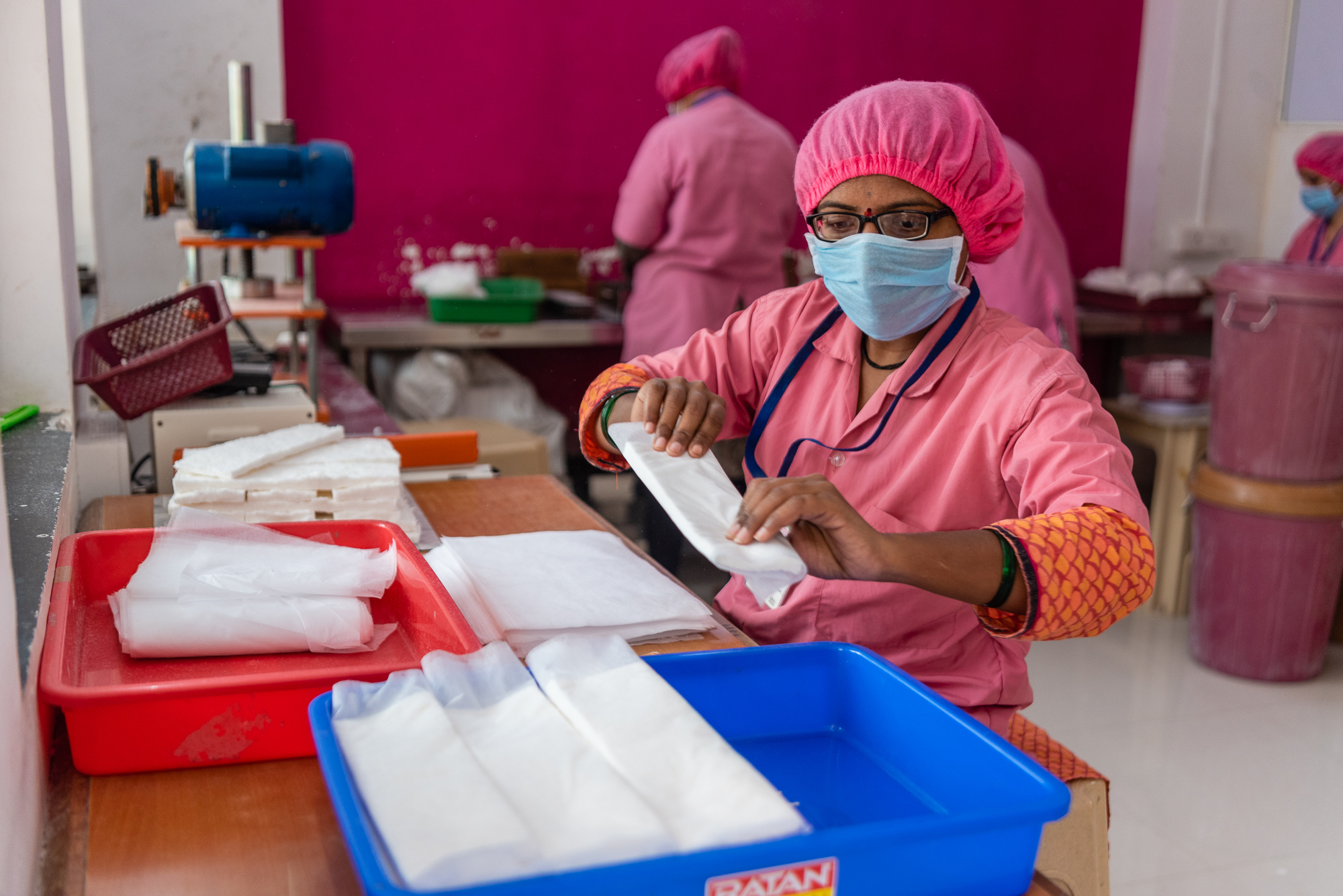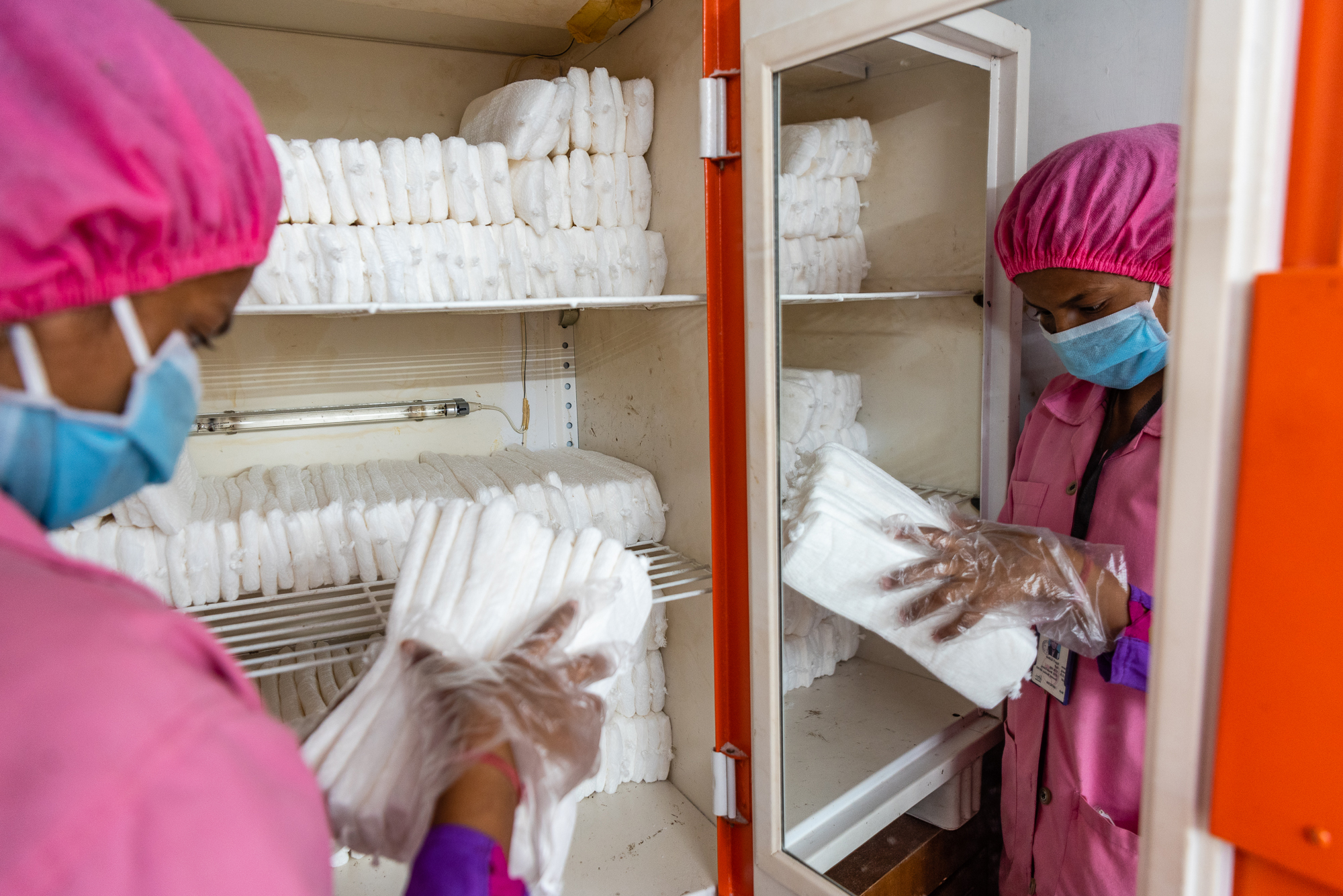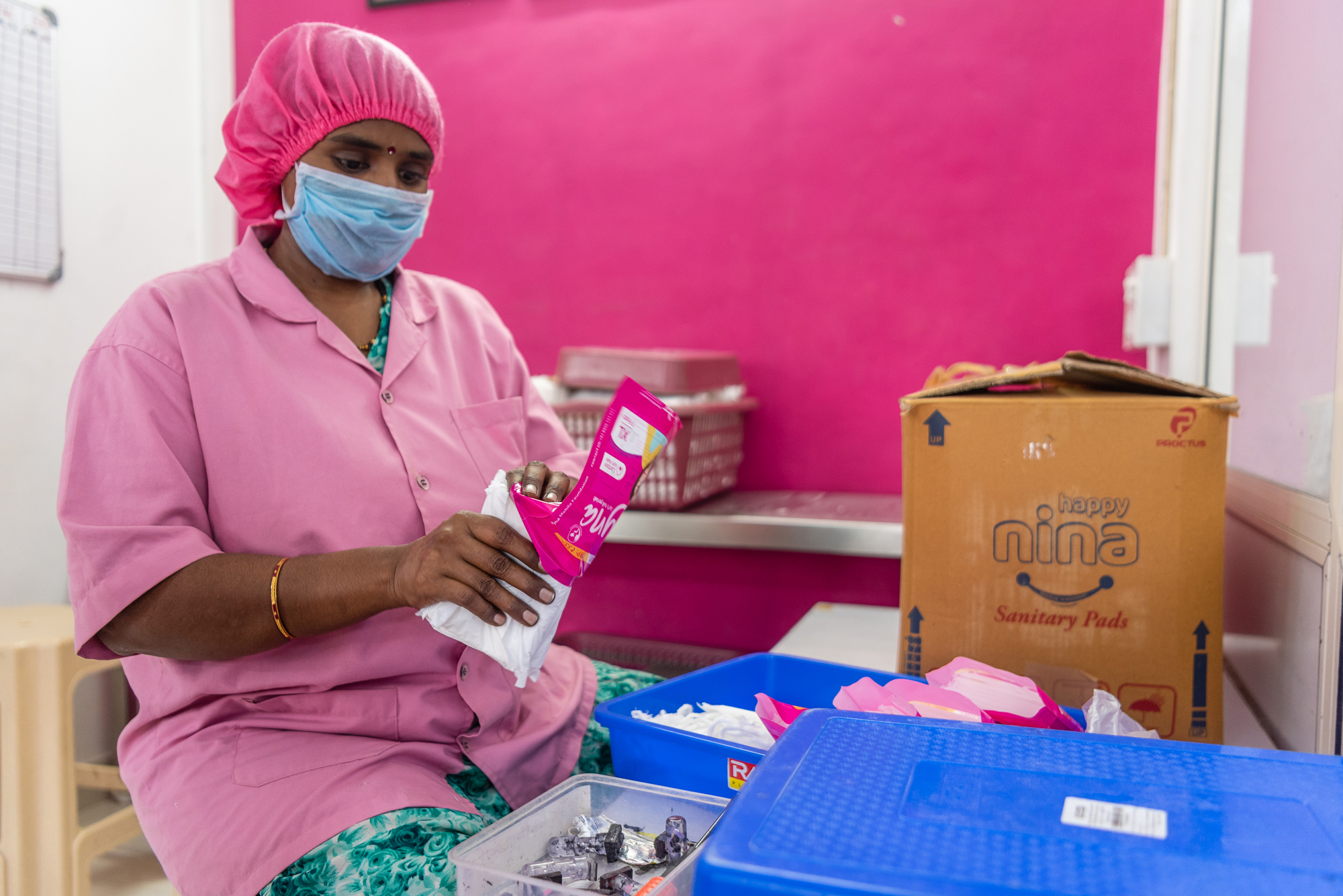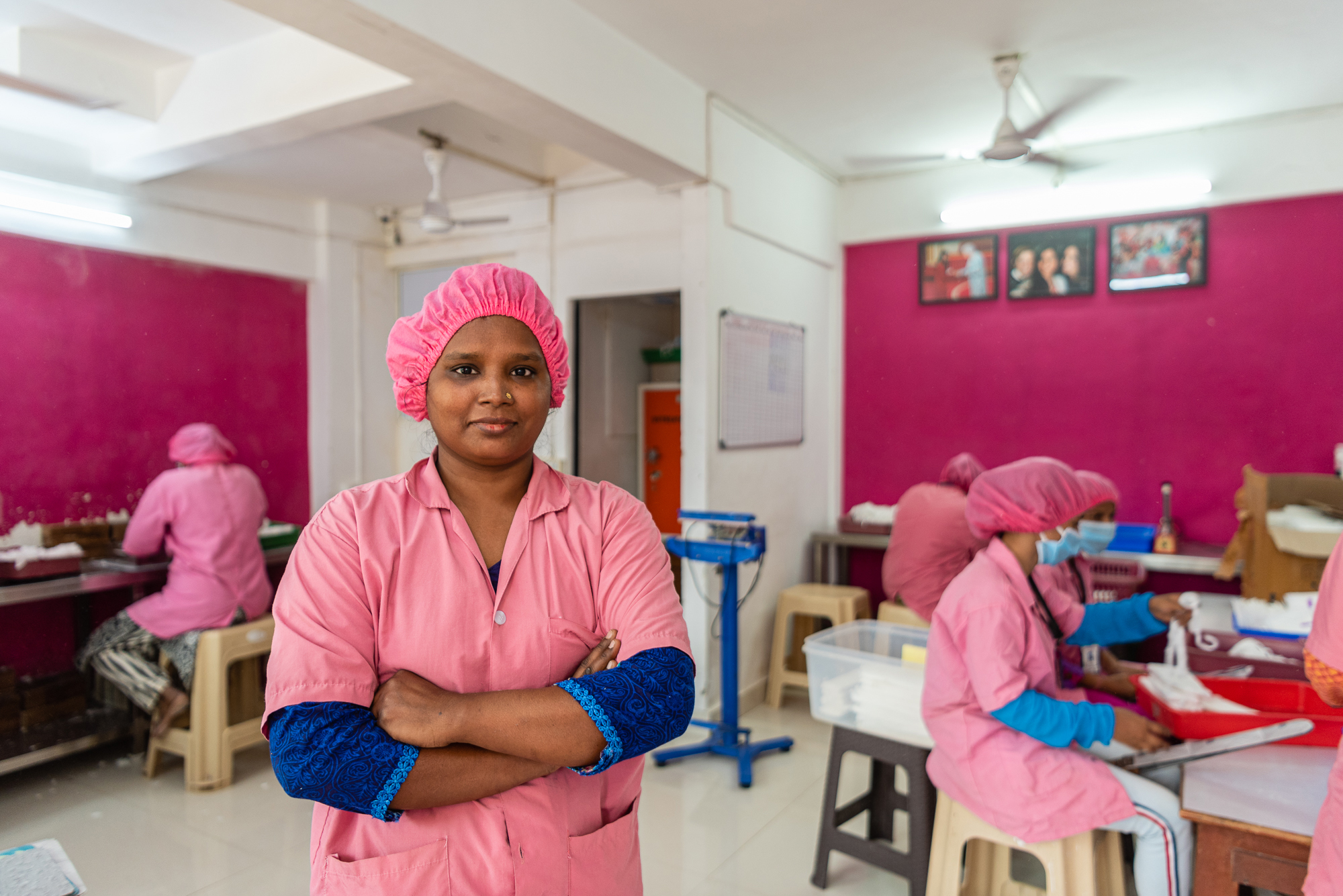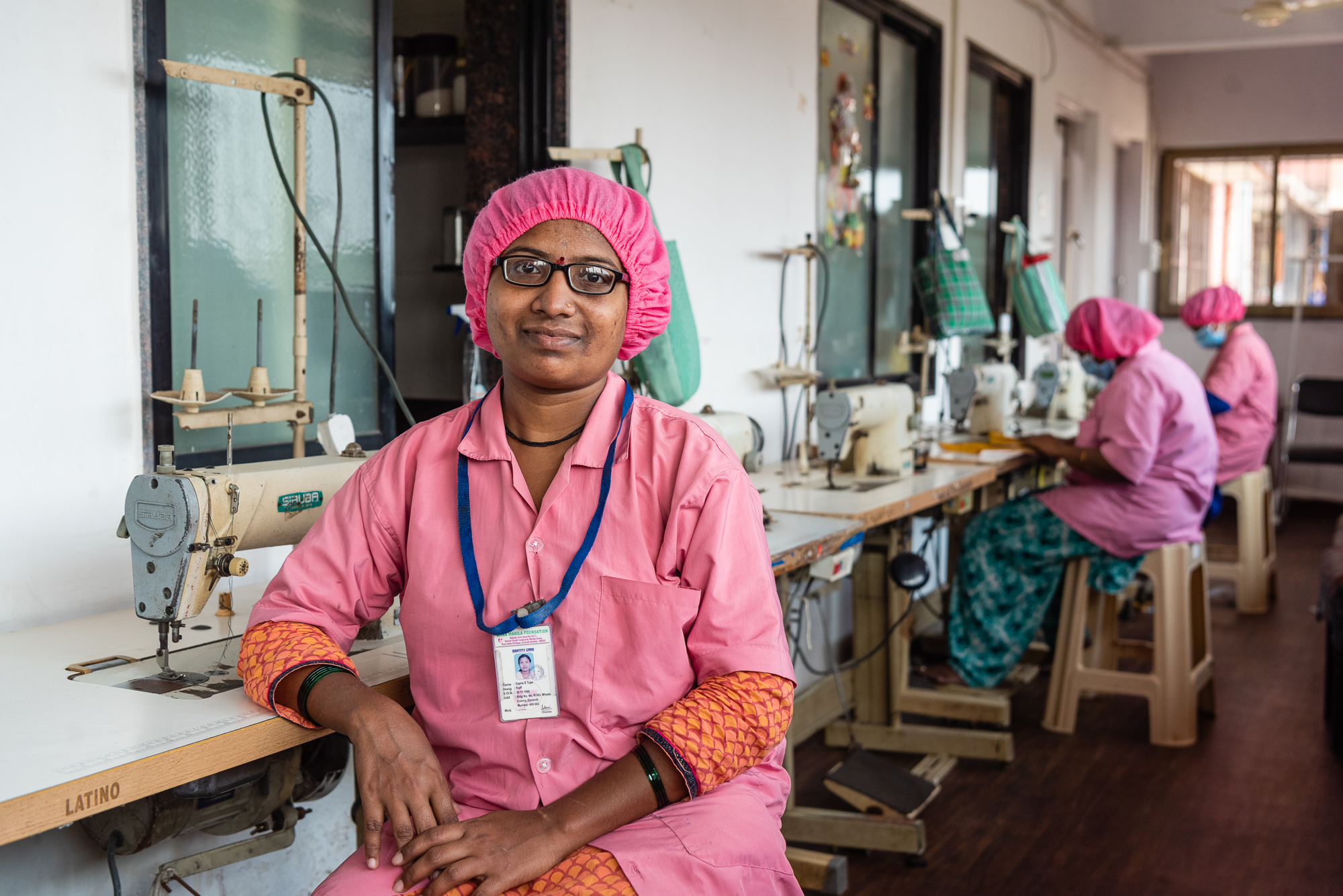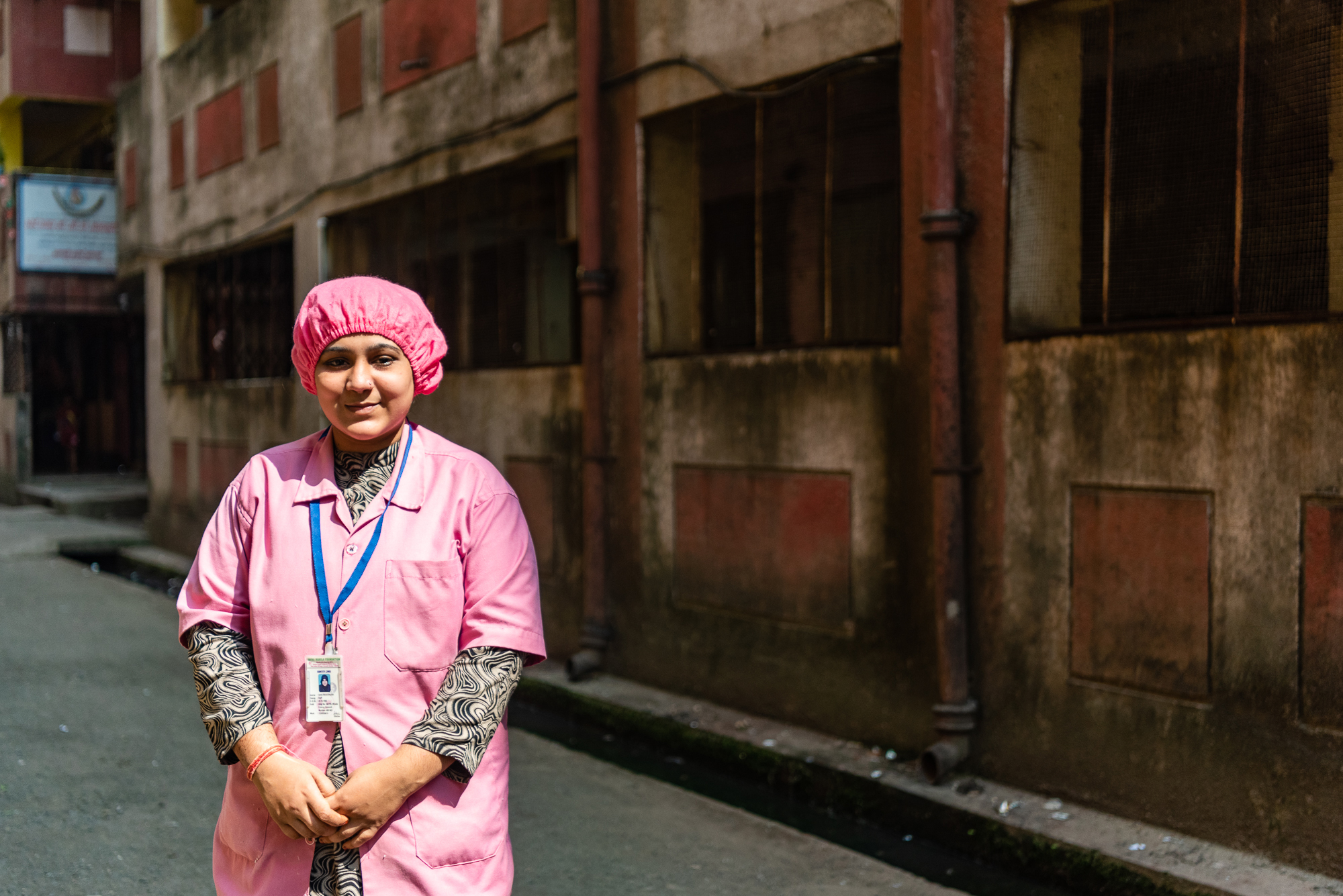Suhani Jalota is at Stanford University in California, thinking of the women in her life. Her mom was a fashion designer who now works for a girls' education organization, but growing up in India, she faced systemic discimination.
“My mom was given a curfew. She had to come home by 6 p.m. every evening,” Jalota tells Global Citizen. “She was allowed to only attend an only-girls school and college.”
Jalota’s grandma, meanwhile, was ahead of her years and extremely brilliant and talented. She was a singer in her town in North India, but got married at the age of 19 and had to give up her career and her passion.
"I realized that in our patriarchal family, there was a lot of unfairness towards women — and my mom was one of the first to stand up,” she adds. “It’s something I know I want to carry forward. Every girl needs to have that right.”
The belief that women and girls deserve equality, and deserve the right to shape their own lives, is a belief that Jalota has always held close to her heart — and now, she has been named one of the three finalists for the Global Citizen Prize: Cisco Youth Leadership Award 2020, an accolade that celebrates young activists working towards ending extreme poverty, and awards $250,000 to support the winner’s organization.
 Suhani Jalota, founder of Myna Mahila Foundation, brainstorms with her team members Ankur Manikandan, Data Scientist, and Shagun Maheshwari, New Product Development Lead in San Jose, California.
Suhani Jalota, founder of Myna Mahila Foundation, brainstorms with her team members Ankur Manikandan, Data Scientist, and Shagun Maheshwari, New Product Development Lead in San Jose, California.
A public vote has launched to help decide the winner of the Cisco Youth Leadership Award. You can find out more about the three finalists, and cast your vote for who you think should win, here.
When Jalota was 20, she founded the Myna Mahila Foundation, a social enterprise that trains and employs women to make low-cost, eco-friendly sanitary products. Six years later, her foundation has produced over 1 million eco-friendly pads for women, and delivered them to 550,000 women in 15 slum communities in Mumbai.
Her work has led to a vast array of accolades, including a Queen's Young Leaders Award in 2017, where she met Queen Elizabeth II herself. The Queen asked her what slum governance was, and told Jalota: “What you’re doing is really important.”
But it all started from that awareness of bubbling injustice, an instinctive feeling that intensified when Jalota was diagnosed with a serious illness at 14 — an illness that would inadvertently lead her to the women to whom she has since dedicated her whole life.
“I saw people in hospital beds next to mine — I come from a government family, so the government was paying a lot of the bills — but others, their bills couldn’t be footed,” Jalota says. “There’s massive inequalities in how people were given access to treatment. It was just unfair.”
Jalota decided to pursue that inequality. It took her to the slums of Mumbai, following in her family’s footsteps — her mother who works with underprivileged children, her father who works with the Government, and her brother who created water filters for the poorest communities. The women she met with — the women who, according to Jalota, changed her life — shared with her the city’s darkest secrets.
 Suhani Jalota listens during a call with her Myna Mahila team in Mumbai, India via video conference.
Suhani Jalota listens during a call with her Myna Mahila team in Mumbai, India via video conference.
“When I started going to the slums, just after I had recovered [from the illness], I started working with women on the ground,” Jalota says. “They were telling me stories with a smiling face about getting married at the age of 12, abused by their husbands much, much older than them, drunk all the time, asking them for money.”
“So the women are working four to five jobs, taking care of all the children, feeding the children because the husbands are earning absolutely nothing,” she continues. “They’re walking long distances to public toilets, then are harassed on their way to the toilet. They've seen their children die… They’ve accepted this as the norm.”
She added: “Those women didn’t think anyone cared about what they wanted. Instead, life was about doing whatever they could to survive.”
The women in the slums faced so many interconnected issues: poverty, violence, poor education, lack of access to health care — and Jalota desperately wanted to help. But the words of her mentor, the Nobel Peace Prize-nominated community activist Dr. Jockin Arputham, who Jalota says inspires her above all others, rang through her mind, over and over.
“You cannot come in to solve their problems,” Arputham told her. “That’s not what’s going to change anything. It’s about them solving their own problems. You need to just give them enough energy and confidence to be able to do that.”
He taught her that a toilet was a symbol of freedom. If you become in control of where you defecate, you are empowered to go further, to leave the household, to get a job, or to send your daughters to school. Jalota kept talking to the women she had befriended in the slums, and she discovered that there was one common thread that brought all these problems together.
 Employees of Myna Mahila walk near their offices in Mumbai's Govandi slums. While community distribution is temporarily suspended due to COVID-19, Myna has produced over 1 million eco-friendly sanitary pads, and delivered them to them to 550,000 women.
Employees of Myna Mahila walk near their offices in Mumbai's Govandi slums. While community distribution is temporarily suspended due to COVID-19, Myna has produced over 1 million eco-friendly sanitary pads, and delivered them to them to 550,000 women.
“Menstrual hygiene and sanitation… [was] something that preserved or exposed a family’s dignity,” she says. “We needed to have these difficult conversations that would bring up gender in the household.”
For over 10 years now, Jalota has worked hands-on in Mumbai’s urban slum communities, listening to women’s stories of “suffering, disrespect, and shame”; she’s seen firsthand just how “women and girls are stuck in a societal trap”. Through listening to women’s stories, Jalota was inspired to unite with community leaders to start a movement to “get women to feel more confident, to come together and become financially independent.”
Gradually, this work grew to become the Myna Mahila Foundation, launched in 2015, to help women along that pathway to empowerment — apt, given that the foundation is named after the Myna, a south Asian talking bird known for its loud voice.
The women told Jalota that they felt proud when they could create something to fix a solution themselves, such as cooking a meal. It bred confidence and self-esteem. That’s where the idea for producing sanitary pads came from — something that women could make themselves, that could be celebrated, that improves menstrual hygiene while also fostering financial independence.
Jalota has an action plan to reach 2 million more women across India in the next five years. But, as with the rest of the world, 2020 brought the COVID-19 pandemic to the country.
India is currently the world’s second-largest hotspot for the virus, after the United States, at 8.5 million cases and over 126,000 deaths. So when India was first locked down in March, Jalota’s foundation immediately pivoted to support people in the surrounding Govandi slums. They designed an eight-point plan and expanded their team.
The Myna Mahila Foundation started making face masks, delivering them door to door with food rations and educational materials. That was followed by sanitary relief and disease surveillance, all while referring women to a domestic violence charity in Mumbai as abuse sky-rocketed at home.
They launched an app that features videos with verified information about both the pandemic and menstrual health, and a tracking service to monitor any irregularities in their periods.
 During the COVID-19 pandemic, Myna Mahila launched an app that features videos with verified information about both the pandemic and menstrual health, and a tracking service to monitor any irregularities in users periods.
During the COVID-19 pandemic, Myna Mahila launched an app that features videos with verified information about both the pandemic and menstrual health, and a tracking service to monitor any irregularities in users periods.
“This was a responsibility for us now,” she says. “We had to go in and support these people because there was honestly nobody else who was going to come in and do that.”
Her story is one rooted firmly in grassroots activism — and yet, while Jalota strived to get to know the women she wanted to help, one of the most famous women in the world had been spending months trying to learn more about her after a chance meeting in New York City.
Jalota was visiting Manhattan in April 2016, after winning the grand prize at the Glamour College Women of the Year Awards. It was the first time they’d considered an international student, and while she was making a speech about menstrual health at a special luncheon, Meghan Markle was listening in the audience.
When they met briefly for a photo, Jalota hadn’t seen Suits — the TV show Markle starred in — and was only peripherally aware of the rumors that she was dating the UK’s Prince Harry. Then three months later, Markle emailed her out of the blue. She said she’d been trying to get in touch for ages, and wanted to organize a visit to see Myna’s work for herself in Mumbai. The pair had a video call, Markle took notes, and in January 2017, they made it happen.
The following year, Jalota travelled to the UK after Markle invited her to the Royal Wedding, bringing with her two women that work at Myna. Everyone kept shaking their hands, congratulating them on their work. “It was awesome to see,” Jalota says.
 While Suhani Jalota studies at Stanford University in California, United States and during the COVID-19 pandemic, Jalota stays in touch with her Myna Mahila team in Mumbai, India via video conference.
While Suhani Jalota studies at Stanford University in California, United States and during the COVID-19 pandemic, Jalota stays in touch with her Myna Mahila team in Mumbai, India via video conference.
And instead of asking for wedding gifts, Markle instead asked guests to donate to one of seven different charities in their name — of which, Myna was one.
Both Jalota and Priya Prakash — the 29-year-old Indian health care activist who won the Cisco Youth Leadership Award in 2019 — were on the Forbes 30 Under 30 2018 list for social entrepreneurs in Asia. It was through Prakash, in fact, that Jalota first heard about the prize.
“The award is a platform where our girls’ voices can be really recognized,” Jalota says. “The funding is actually huge ... In terms of being able to dream big, in terms of being able to meet our vision … It means a lot to us.” For her foundation, it represents a path to take menstrual hygiene from Mumbai to the rest of India, and from there to the whole world.
One day, Jalota dreams of Myna campuses across India, physical institutions that can offer housing for women who work there, education, leadership training, and much more.
But for now, as the world takes tentative steps towards ending the pandemic — and looks ahead at a future filled with the same compassion and vigor that she’s brought to her work since she was 14 years old — Jalota is thinking about the women in her life.
Join Global Citizen in December 2020 to celebrate the leaders among us who have stepped up against a backdrop of unprecedented global challenges to take action for the world we want — a world that is fair, just, and equal.
The broadcast and digitally streamed award ceremony will also feature inspirational stories of human strength and unforgettable performances that will bring together artists, activists, and global leaders to remind each of us that, together, we will come out of this year stronger. Find out more about the Global Citizen Prize here.

